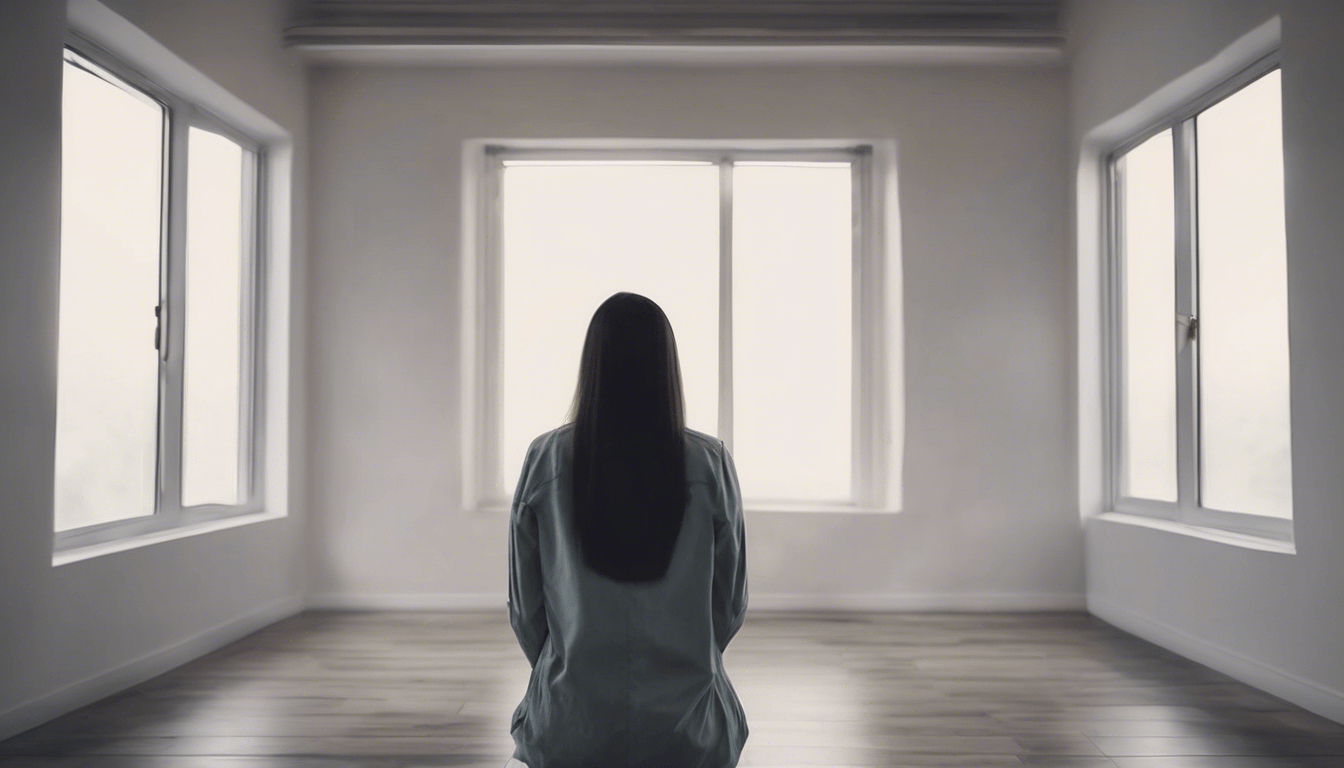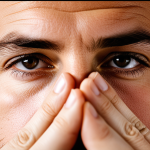Anxiety can feel overwhelming, affecting every aspect of life. But understanding its roots and impact reveals pathways to relief. Incorporating evidence-based techniques like mindfulness, breathing exercises, and professional support offers practical ways to manage symptoms. Embracing lifestyle changes and long-term strategies enhances resilience and peace. Explore these proven methods to transform anxiety from an obstacle into a manageable part of your journey toward well-being.
Understanding Anxiety and Its Impact
Anxiety is a natural response characterized by feelings of worry, nervousness, or unease about an imminent event or uncertain outcome. Common symptoms of anxiety include restlessness, rapid heartbeat, sweating, trembling, as well as difficulty concentrating. Recognizing these symptoms is essential for effective anxiety management.
Topic to read : Top Strategies for Seamlessly Introducing a Plant-Based Diet to Your Kids
Physiologically, chronic anxiety triggers the body’s stress response, releasing hormones like cortisol and adrenaline, which prepare the body for ‘fight or flight.’ Over time, this constant activation can lead to health issues including elevated blood pressure, digestive problems, and weakened immune function. Psychologically, persistent anxiety can cause difficulty in focusing, memory problems, irritability, and sleep disturbances. These effects cumulatively hamper a person’s ability to function optimally.
In daily life, anxiety significantly influences overall well-being and performance. It can impair decision-making, reduce productivity, and strain relationships. Understanding these impacts is a crucial step in learning how to manage anxiety effectively. For those seeking more in-depth strategies, one may discover ways to manage anxiety through tailored approaches that promote calm and resilience.
Also to discover : Unlock the Power of Omega-3: Discover the Life-Changing Health Benefits of Essential Fatty Acids!
Evidence-Based Techniques for Managing Anxiety
Understanding and applying proven methods to ease anxiety
Anxiety reduction techniques are essential tools for managing the overwhelming feelings that can disrupt daily life. Among the most effective strategies are mindfulness and meditation practices, breathing exercises and relaxation strategies, and cognitive behavioral therapy (CBT). These approaches are supported by extensive scientific research and have practical applications for anyone seeking relief.
Mindfulness and Meditation Practices
Mindfulness meditation has gained recognition for its ability to reduce anxiety by encouraging present-moment awareness. This practice helps individuals observe their anxious thoughts without judgment, which decreases the intensity of emotional reactions. To implement mindfulness exercises, one can start with short daily sessions where attention is focused on the breath, bodily sensations, or sounds. Regular mindfulness practice strengthens emotional regulation and reduces anxiety symptoms. Numerous studies confirm its efficacy, highlighting improvements in anxiety severity and overall well-being.
Breathing Exercises and Relaxation Strategies
Deep breathing is a simple yet powerful tool for managing acute anxiety. Techniques such as diaphragmatic breathing promote relaxation by activating the parasympathetic nervous system. Progressive muscle relaxation complements this by systematically tensing and relaxing muscle groups, which alleviates physical tension linked to anxiety. Integrating these breathing exercises into daily routines can help control sudden anxiety spikes and foster a calm mental state over time.
Cognitive Behavioral Therapy (CBT) and Professional Support
CBT is a structured, evidence-based therapy that addresses anxiety by changing negative thought patterns and behaviors. It teaches practical skills to challenge irrational fears and replace them with balanced perspectives. When anxiety becomes chronic or debilitating, seeking professional mental health support is recommended. Therapists trained in CBT provide tailored guidance that enhances coping and symptom management. Research consistently validates CBT’s effectiveness, making it a cornerstone in anxiety treatment plans.
For those interested in further strategies, you might also want to discover ways to manage anxiety, reinforcing these techniques with additional resources and personalized approaches.
Lifestyle Modifications to Reduce Anxiety
Effective lifestyle changes can significantly reduce anxiety by targeting its root causes and reinforcing mental resilience. Regular physical activity stands out as a key factor. Exercise triggers the release of endorphins, which are natural mood enhancers, helping to alleviate feelings of tension and worry. Incorporating even moderate exercise, such as daily walks or yoga, can improve mental well-being consistently.
Nutrition plays a pivotal role in mental health stability. A balanced diet rich in whole foods, including fruits, vegetables, lean proteins, and omega-3 fatty acids, supports brain function and regulation of mood. Avoiding excessive caffeine and processed sugar helps prevent spikes in anxiety levels, contributing to a calmer mind throughout the day.
Sleep hygiene is equally crucial. Poor sleep often exacerbates anxiety symptoms, making it harder to manage stress. Establishing a consistent sleep schedule, creating a restful environment, and limiting screen time before bed promotes better rest. These habits help reduce nighttime restlessness and support emotional balance.
By integrating these lifestyle modifications, individuals can create a foundation that supports mental health and reduces anxiety symptoms naturally. Each aspect from physical activity and nutrition to sleep works synergistically to enhance overall emotional stability. For those looking to expand their toolkit, it’s valuable to discover ways to manage anxiety in a holistic manner.
Additional Strategies and Resources
Anxiety management extends beyond conventional methods, embracing herbal remedies and supplements that have shown promising scientific results. Ingredients like chamomile, lavender, and valerian root are often studied for their calming effects. They work by interacting with neurotransmitters in the brain to reduce tension and promote relaxation, which many find beneficial as a complementary approach.
Emerging therapies such as virtual reality (VR) and biofeedback are advancing anxiety treatment by engaging users actively in their recovery. VR therapy, for instance, immerses individuals in controlled environments to face and reduce anxiety triggers gradually. Biofeedback involves monitoring physiological signals like heart rate or muscle tension and learning to regulate them, empowering individuals to directly influence symptoms of anxiety through mind-body awareness.
For ongoing support, numerous trusted online resources, apps, and books serve as valuable companions. Apps designed for anxiety management often feature guided meditations, journaling prompts, and mood tracking to foster consistent practice. Books authored by experts include practical exercises and insights that encourage self-understanding and resilience. These tools create structured avenues for progress and self-care that complement other treatment options.
Incorporating these diverse approaches requires dedication but can significantly enhance overall well-being. To explore comprehensive techniques to improve mental health, you might consider discovering ways to manage anxiety tailored to your preferences and lifestyle.
Ensuring Long-Term Peace and Anxiety Control
Sustaining long-term peace and effective anxiety control requires a proactive approach rooted in consistent practice and awareness. Building resilience forms the foundation of this process. This involves regularly applying proven techniques such as mindfulness, breathing exercises, and cognitive behavioral strategies to strengthen your ability to manage stress before it escalates. Consistency is key sporadic efforts often lead to temporary relief rather than enduring stability.
Recognizing early signs of anxiety relapse is crucial to prevent a full-blown episode. These signs may include subtle changes in mood, increased irritability, or physical symptoms like muscle tension and restlessness. Early intervention through targeted coping mechanisms can halt progression and maintain mental balance.
Maintaining mental health over time also involves ongoing education and self-care. Staying informed about anxiety management best practices empowers you to adapt techniques as needed and avoid stagnation. Self-care practices such as regular physical activity, balanced nutrition, and sufficient sleep enhance overall well-being, making it easier to combat anxiety symptoms effectively.
For those seeking additional support, you can discover ways to manage anxiety that integrate holistic approaches alongside traditional methods. By approaching anxiety with an informed and structured plan, long-term peace becomes an achievable goal rather than a distant hope.




